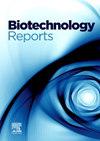Green nanoscience for healthcare: Advancing biomedical innovation through eco-synthesized nanoparticle
Q1 Immunology and Microbiology
引用次数: 0
Abstract
Green synthesis is an eco-friendly and sustainable approach to nanoparticle production using biological sources such as plant extracts and microorganisms. Unlike traditional chemical methods, it aligns with green chemistry principles by reducing toxic reagents, minimizing waste, and lowering environmental impact. Green-synthesized nanoparticles have shown great potential, especially in biomedicine, for targeted drug delivery, antimicrobial treatments, and imaging applications. Their properties can be finely tuned by controlling size, shape, and composition, supporting applications across electronics, healthcare, and environmental engineering. Characterization techniques are essential for analyzing their structural and functional attributes. However, challenges remain in terms of scalability, reproducibility, and lack of standardized synthesis protocols. The aim of this review is to explore recent advances in green nanoparticle synthesis, evaluate key mechanisms, highlight biomedical and environmental applications, and discuss current limitations. The review also emphasizes future directions and the need for interdisciplinary collaboration to unlock the full potential of green nanotechnology.

绿色医疗纳米科学:通过生态合成纳米颗粒推进生物医学创新
绿色合成是利用植物提取物和微生物等生物来源生产纳米颗粒的一种生态友好和可持续的方法。与传统的化学方法不同,它符合绿色化学原则,减少有毒试剂,最大限度地减少浪费,降低对环境的影响。绿色合成的纳米颗粒已经显示出巨大的潜力,特别是在生物医学,靶向药物输送,抗菌治疗和成像应用。它们的特性可以通过控制尺寸、形状和组成来精细调整,支持电子、医疗保健和环境工程等领域的应用。表征技术是分析其结构和功能属性的关键。然而,在可伸缩性、再现性和缺乏标准化合成协议方面仍然存在挑战。本综述旨在探讨绿色纳米颗粒合成的最新进展,评估关键机制,突出生物医学和环境应用,并讨论当前的局限性。该综述还强调了未来的方向和跨学科合作的需要,以释放绿色纳米技术的全部潜力。
本文章由计算机程序翻译,如有差异,请以英文原文为准。
求助全文
约1分钟内获得全文
求助全文
来源期刊

Biotechnology Reports
Immunology and Microbiology-Applied Microbiology and Biotechnology
CiteScore
15.80
自引率
0.00%
发文量
79
审稿时长
55 days
期刊介绍:
Biotechnology Reports covers all aspects of Biotechnology particularly those reports that are useful and informative and that will be of value to other researchers in related fields. Biotechnology Reports loves ground breaking science, but will also accept good science that can be of use to the biotechnology community. The journal maintains a high quality peer review where submissions are considered on the basis of scientific validity and technical quality. Acceptable paper types are research articles (short or full communications), methods, mini-reviews, and commentaries in the following areas: Healthcare and pharmaceutical biotechnology Agricultural and food biotechnology Environmental biotechnology Molecular biology, cell and tissue engineering and synthetic biology Industrial biotechnology, biofuels and bioenergy Nanobiotechnology Bioinformatics & systems biology New processes and products in biotechnology, bioprocess engineering.
 求助内容:
求助内容: 应助结果提醒方式:
应助结果提醒方式:


